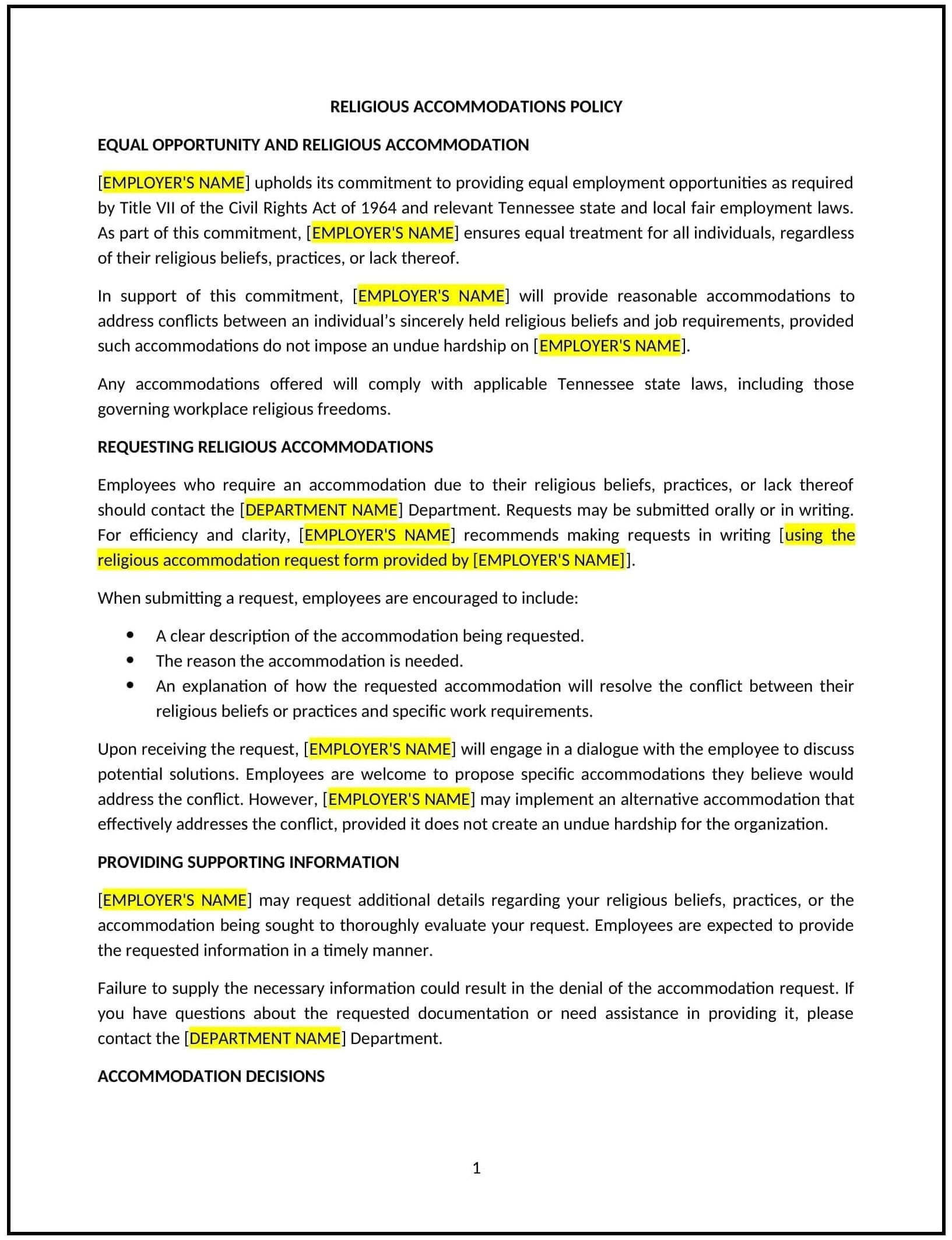Religious accommodations policy (Tennessee): Free template
Got contracts to review? While you're here for policies, let Cobrief make contract review effortless—start your free review now.

Customize this template for free
Religious accommodations policy (Tennessee)
This religious accommodations policy is designed to help Tennessee businesses establish guidelines for accommodating employees’ religious beliefs and practices. It outlines procedures for requesting and implementing accommodations, such as schedule adjustments or dress code modifications.
By adopting this policy, businesses can promote inclusivity, comply with federal and state laws, and foster a respectful workplace culture.
How to use this religious accommodations policy (Tennessee)
- Define religious accommodations: Clarify what types of accommodations may be provided, such as flexible scheduling or dress code exceptions.
- Set request procedures: Provide steps for employees to request accommodations, including required documentation and timelines.
- Address undue hardship: Explain how the business will evaluate requests and determine if an accommodation creates undue hardship.
- Train managers: Educate supervisors on handling accommodation requests and fostering inclusivity.
- Review and update: Assess the policy annually to ensure it aligns with evolving business needs and legal requirements.
Benefits of using this religious accommodations policy (Tennessee)
This policy offers several advantages for Tennessee businesses:
- Promotes inclusivity: Demonstrates a commitment to respecting employees’ religious beliefs and practices.
- Ensures compliance: Helps businesses comply with federal and state laws, such as Title VII of the Civil Rights Act.
- Enhances workplace culture: Fosters a respectful and supportive environment for employees of all faiths.
- Reduces turnover: Builds loyalty by showing employees that their beliefs are valued.
- Aligns with best practices: Encourages a structured approach to managing religious accommodations.
Tips for using this religious accommodations policy (Tennessee)
- Communicate the policy: Share the policy with employees and include it in the employee handbook.
- Provide training: Educate managers on handling accommodation requests and fostering inclusivity.
- Monitor compliance: Regularly review accommodation requests and workplace practices to ensure adherence.
- Address issues promptly: Take corrective action if accommodation requests are mishandled or denied improperly.
- Update regularly: Assess the policy annually to ensure it aligns with evolving business needs.